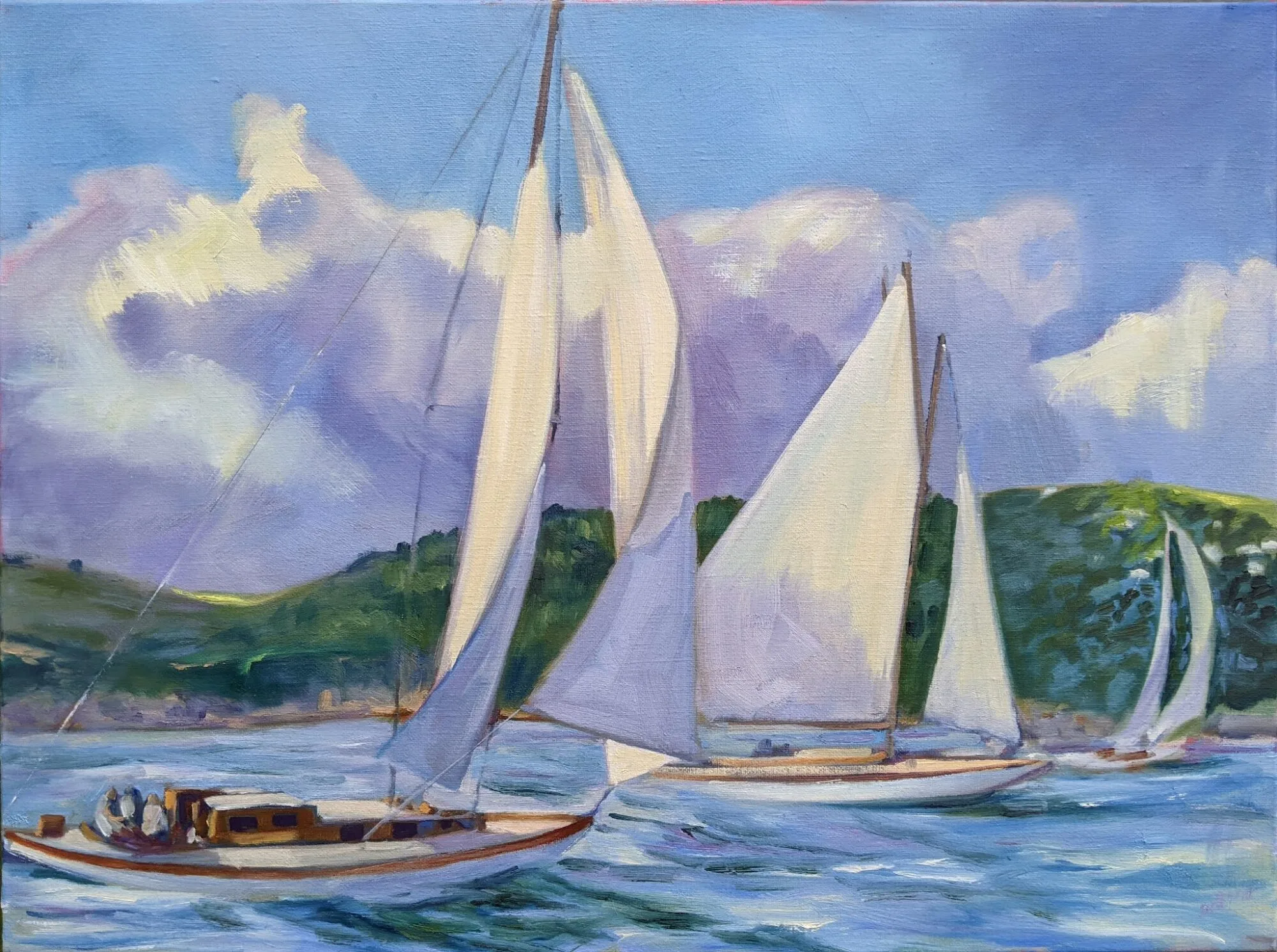Failure is the one sure sign that you’re experimenting and growing as an artist.
 |
| Beth Carr’s painting of her mother camping, from a recent class on integrating figure into landscape. |
I’ve got a student who’s been down in the dumps for a few weeks now. “Everything I paint is terrible,” she said. “I throw it in the fire.” What do when you hit the doldrums, she asked the class.
First, be merciful to yourself. This student had major surgery a few months ago. She recently took a workshop that was a sucker-punch to her self-confidence. We all want to believe we’re like Bozo-the-Clown bop bags, able to spring back upright right after we take a hit. That’s not how we’re made. The body and mind both need time to recover from injury.
 |
| Lauren Hammond’s contre-jour fruit. |
“Painting is hard,” her classmates reminded her. Yes, it’s also fun and immensely rewarding, but each time we pick up a brush it’s a personal battle between our inner vision and our own limitations. That gets exhausting at times.
Experience is a great teacher. For children, every setback seems catastrophic. Toddlers cry uncontrollably when toys are snatched from them. The circumstances change, but the reaction remains. “I will never pass my driver’s test!” “He asked her to the dance, and not me!”
 |
| Lorraine Nichols turned her drapery study into seasonal fun. |
As adults, we watch these tempests with a certain amount of detached amusement. We empathize, having once been young ourselves. We also know how things level out over time. In fact, it’s through surviving these periodic disappointments that children learn resilience and tenacity.
The painting student is emotionally and intellectually adult, of course. However, he or she hasn’t been painting long enough to have racked up a history of bad paintings. That makes him feel those failures very deeply.
 |
| Cassie Sano painted my favorite blueberry barrens during plein air class. |
When you’ve been painting a long time, you have an entire studio full of bad art. In fact, failure is the one sure sign that you’re experimenting and growing as an artist.
Sometimes this can stretch into weeks or even months. I’ve learned that it’s paradoxically a good sign—it means I’m integrating a new idea into my painting. Periodic lousy painting is, more often than not, a sign of intellectual ferment.
 |
| Sue Colgan-Borror’s contre-jour fruit. |
I take refuge in routine. I always go in the studio at the same time, and I find that carries me through these uninspired times.
The support of other artists is invaluable. I have just three friends I can be brutally honest with about my paintings. They won’t lie to me and say they’re good when they’re not. They understand my values and goals. How do you find friends like these? Join a painting group, take a class, and cultivate friendships within the painting community.
 |
| Mark Gale is tuning in to Zoom class from wherever he lands in his Airstream camper. This is a ski tech in Telluride. |
But if a person makes you feel bad when you’re working with them, steer clear of them no matter how witty or pleasant they may seem. There are too many people in the art world who prop up their own egos by scoring off others. Some are very subtle.
I have three openings in my Monday evening class (6-9 PM, EST) and either two or four in the Tuesday morning class (10 AM-1 PM). The new session starts next week and runs until the week of December 14. You can learn more here.
